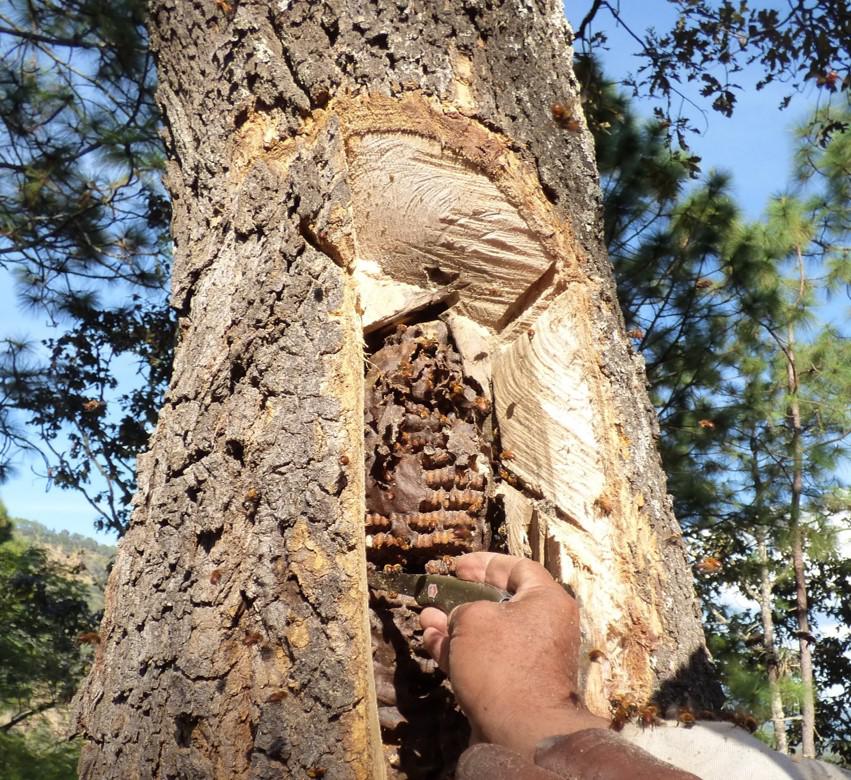Alejandro Reyes Gonzalez
Currently, stingless bees' populations are declining due to environmental degradation. In this context, this project aims to generate strategies for conservation and sustainable management of stingless bees in the central-western region of Mexico. To achieve these goals we will:
1) Document local knowledge and traditional use of stingless bees. This objective will be developed applying in-depth interviews in several municipalities.
2) Know the diversity and distribution of stingless bees in Balsas basin of Michoacan state. This objective will be developed collecting and record stingless bees in the same localities in which the interviews.
3) Additionally, we will carry out at least three participatory workshops aimed at highlighting the importance of the conservation of native bees and their potential for sustainable management (meliponiculture).
This is fundamental for the development of conservation strategies and sustainable use of stingless bees.

Wild nest of Melipona fasciata that was looted to extract the honey. We rescue the internal nest (breeding) by transferring it to a box.
Bee diversity is still unknown in various regions of Mexico. Among these, there are bees of cultural and traditional interest, such as stingless bees (Apidae: Meliponini), which are also excellent native pollinators. In the State of Michoacan, it is important to generate knowledge on their distribution, population status and also to document the local knowledge and management of these insects. We have previously published preliminary findings in which we registered a sharp decline in stingless bee populations and the local knowledge associated to them. Our studies were carried out in a region of the Balsas Basin - where I am from- and found that according to local perception, bee loss is due to: the looting and hunting of wild bee nests, the indiscriminate use of agrochemicals and the decrease in natural vegetation coverage and land use change.
This project will contribute in two main aspects. The first is the academic and scientific contribution as it will provide better knowledge on stingless bee species and their distribution in México, particularly in the Balsas Basin within the State of Michoacan. The second aspect is the work with the local people in order to document and recover local knowledge and traditional bee management strategies from rural communities. In this way, we will also be able to involve local people into the project, while teaching them about the importance of conserving native bees. Also, we will develop environmental education actions considering the importance of conserving native bees and sustainable management strategies as the meliponiculture. This may also be an economic alternative for marginal rural communities in the region due to the interest people have shown in technified stingless beekeeping.